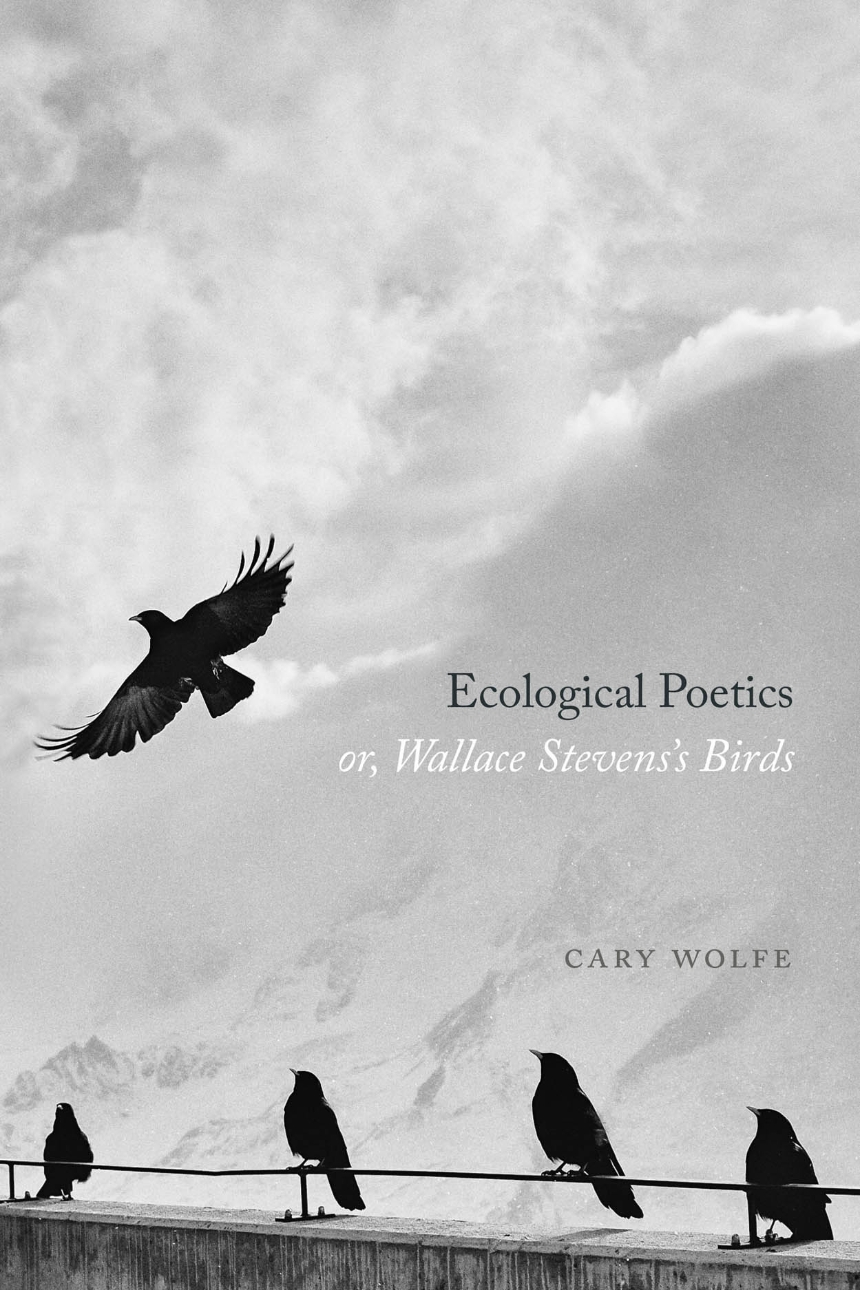Ecological Poetics; or, Wallace Stevens’s Birds
The poems of Wallace Stevens teem with birds: grackles, warblers, doves, swans, nightingales, owls, peacocks, and one famous blackbird who summons thirteen ways of looking. What do Stevens’s evocations of birds, and his poems more generally, tell us about the relationship between human and nonhuman? In this book, the noted theorist of posthumanism Cary Wolfe argues for a philosophical and theoretical reinvention of ecological poetics, using Stevens as a test case.
Stevens, Wolfe argues, is an ecological poet in the sense that his places, worlds, and environments are co-created by the life forms that inhabit them. Wolfe argues for a “nonrepresentational” conception of ecopoetics, showing how Stevens’s poems reward study alongside theories of system, environment, and observation derived from a multitude of sources, from Ralph Waldo Emerson and Niklas Luhmann to Jacques Derrida and Stuart Kauffman. Ecological Poetics is an ambitious interdisciplinary undertaking involving literary criticism, contemporary philosophy, and theoretical biology.
Stevens, Wolfe argues, is an ecological poet in the sense that his places, worlds, and environments are co-created by the life forms that inhabit them. Wolfe argues for a “nonrepresentational” conception of ecopoetics, showing how Stevens’s poems reward study alongside theories of system, environment, and observation derived from a multitude of sources, from Ralph Waldo Emerson and Niklas Luhmann to Jacques Derrida and Stuart Kauffman. Ecological Poetics is an ambitious interdisciplinary undertaking involving literary criticism, contemporary philosophy, and theoretical biology.
232 pages | 6 x 9 | © 2020
Literature and Literary Criticism: American and Canadian Literature, General Criticism and Critical Theory
Reviews
Table of Contents
Preface: “An Affair of Places”
Part 1. Reading Stevens, Once More
Chapter 1. Poems (and Critics) of Our Climate
Chapter 2. “Like Seeing Fallen Brightly Away”: A New Theory for the Emerson/Stevens Genealogy
Part 2. From Epistemological to Ecological Poetics
Chapter 3. “There Is No World”: Deconstruction, Theoretical Biology, and the Creative Universe
Chapter 4. “Never Again Would Birds’ Song Be the Same”
Part 3. “Farewell to an Idea”: Some Later Long Poems
Chapter 5. Scapes and Spheres
Chapter 6. “Premetaphysical Pluralism”: Dwelling in the Ordinary
Coda: Indirections, on the Way
Notes
Index
Part 1. Reading Stevens, Once More
Chapter 1. Poems (and Critics) of Our Climate
Chapter 2. “Like Seeing Fallen Brightly Away”: A New Theory for the Emerson/Stevens Genealogy
Part 2. From Epistemological to Ecological Poetics
Chapter 3. “There Is No World”: Deconstruction, Theoretical Biology, and the Creative Universe
Chapter 4. “Never Again Would Birds’ Song Be the Same”
Part 3. “Farewell to an Idea”: Some Later Long Poems
Chapter 5. Scapes and Spheres
Chapter 6. “Premetaphysical Pluralism”: Dwelling in the Ordinary
Coda: Indirections, on the Way
Notes
Index
